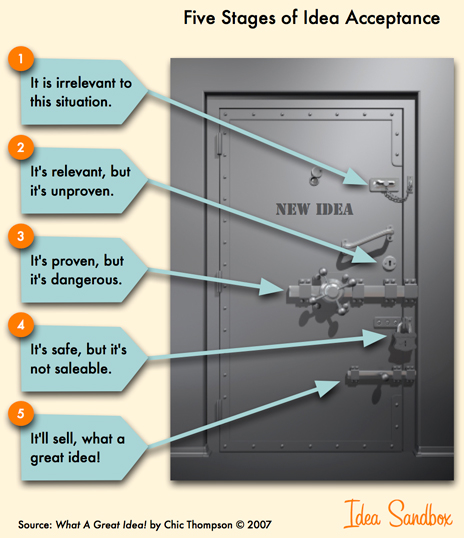Idea Sandbox: The 5 Stages of Acceptance
/Paul Williams reviews the book What A Great Idea! 2.0 by Chic Thompson, which he describes as "chock full o’ bits of wisdom that help with creativity and creating new ideas."
From The Idea Sandbox:
Chic points out that killer phrases “are as inevitable in the innovation process as ideas themselves.”
He adds, “psychologists have siad that the human reaction to a new idea unfolds something like this, which we could call the Five Stages Of Idea Acceptance.” I’ve turned this list into a handy graphic suitable for framing.

The door-lock analogy is pretty accurate… You can have four of the five locks open, but the door is still closed until all five are unlatched.











